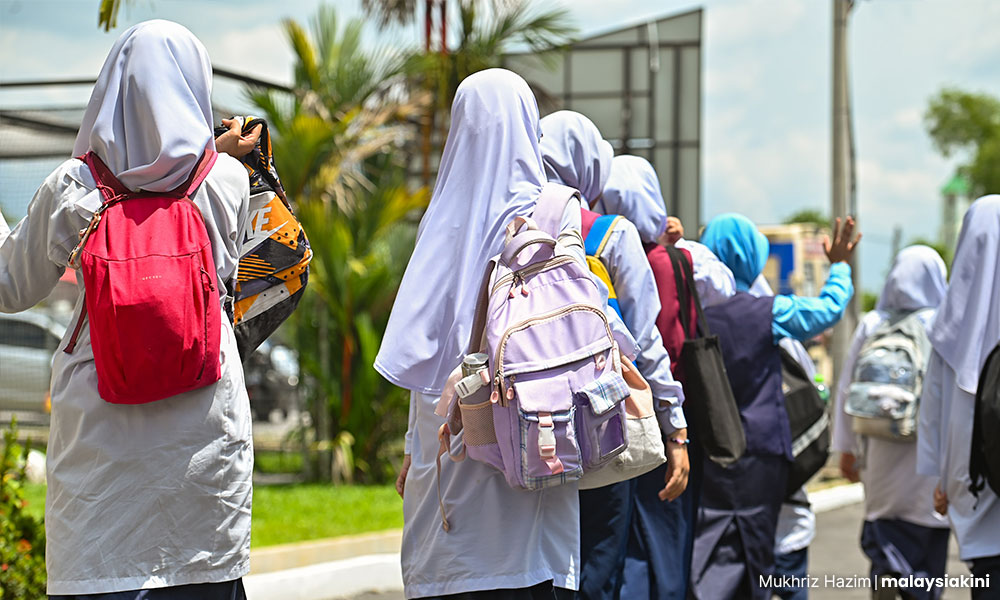LETTER | Yesterday, I read a report about Mara chairperson Asyraf Wajdi Dusuki claiming some parents are declaring themselves as B40 to send their kids to Mara Junior Science College (MRSM) - intended mainly for B40 families. It prompted me to reflect.
Firstly, I have no issue with the government's affirmative action to uplift B40 families through education. I proudly declare myself a Mara product who transformed my life, and this extends to MRSM and scholarships.
While the government has long classified households into B40, M40 and T20 to categorise income, this classification appears to have limitations in crafting effective policies.
Given the pitfalls in this system, why does Mara still adhere to this policy instead of embracing a multidimensional poverty approach?
Yes, it is unethical for some to adjust their payslips to enrol their kids in this school.
However, the majority impacted are from the M40 category, perpetually stuck in the middle, where their income isn't low enough to be classified as B40, yet commitments make them poorer than what's reflected on paper. Where is justice for these people? Have we considered urban poverty?

Numerous studies highlight the oppression faced by middle-income people due to the cost of living, yet they seem to benefit less from government policies.
I want to emphasise my support for the government's aim to address poverty and improve the standard of living. However, does Mara acknowledge the existence of multidimensional poverty?
I personally know individuals earning a T20 payslip, but their monthly commitments are financially suffocating.
As middle-income parents, the pursuit of the best education for their children becomes a challenging endeavour when faced with limited choices.
They find themselves in a position where they are not affluent enough to afford private or international schools, yet not economically disadvantaged enough to benefit from government policies.
This scenario is particularly pronounced in the expanding M40 class, notably in developing countries like Malaysia.
The pivotal question arises - how long should we continue relying solely on income as the measure of poverty? This is a question that demands thoughtful consideration.
In light of this, a proposed solution for MRSM, or any government-sponsored school, is to implement a comprehensive assessment that takes into account the income and affordability of parents.
It seems unjust to base such crucial decisions on a singular numerical criterion without a holistic evaluation.
This approach would empower school management to gauge the financial capabilities of parents and families accurately, determining whether they deserve the opportunity to enrol their children in MRSM or a similar institution.
Time to think and change.
The views expressed here are those of the author/contributor and do not necessarily represent the views of Malaysiakini.

